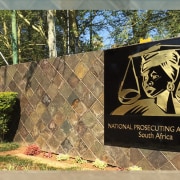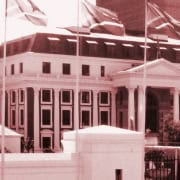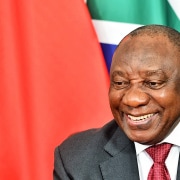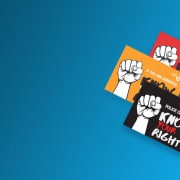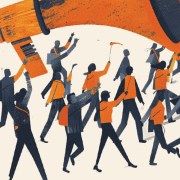|
Getting your Trinity Audio player ready...
|
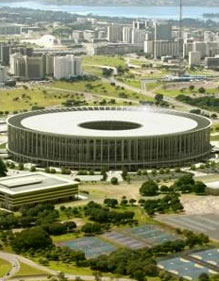 By Valencia Talane
By Valencia Talane
It takes a lot for a country to convince the Federation of International Football Associations (Fifa) of its ability to host a world cup tournament. From the time it starts bidding to the point when the last brick is placed to finish off a world-class stadium, it is a gruelling, costly effort that host citizens can never be fully prepared for.
Brazilians – hosts of the 2014 tournament, which got under way yesterday – have filled the streets to protest against one unfair imposition after another brought on by their government and Fifa. They cried foul over a government they accused of harbouring corrupt officials, at a cost to the poor who lack decent basic services.
Sound familiar? There are many parallels to the story of Brazil and South Africa, both developing countries, as hosts of this major event. An unpleasant element that has dogged both world cups, sadly, is that of high-level corruption. Just as with South Africa, the cost of building Brazil’s stadiums has escalated beyond initial projections, with analysts blaming corruption for this.
One Bloomberg report estimates the $3.7-billion put into constructing the 12 stadiums at almost four times more than Brazil’s bidding committee projected in a presentation to Fifa in 2007. The same thing happened in the lead up to South Africa’s 2010 event. In the end, about R9-billion ($850-million) is estimated to have been spent on upgrading five existing stadiums and building another five from scratch. Not all the money spent comes from public coffers – some of it is from private investments and from Fifa itself. In South Africa, evidence of corruption in the tender processes for building the stadiums emerged after the world cup, with big construction firms revealing to competition authorities how they colluded to abuse the tender processes for the stadiums.
Estádio Nacional Mané Garrincha stadium in Brasilia is now the second most expensive stadium in the world, with a value of $900-million, behind the $1-billion Wembley in England. Soccer City in Soweto was refurbished at a cost of R3.3-billion, over a third of the total cost of the stadium budget. It is now the largest stadium in Africa, used more frequently than the other nine across the country for events like concerts.
Citizens revolt
Manchester United legend Eric Cantona recently made a film focusing on the perspective of ordinary Brazilians regarding the politics behind the world cup in their country. Brazil has seen several protests where citizens have lambasted their government for favouring the image associated with hosting the event over delivery of much-needed services. As Fifa’s Jerome Valcke conceded, Brazil’s world cup is the most expensive ever.
Allegations of corruption in the public sector remain the main area of concern among protesters, along with police brutality and escalating costs of public transportation. One man interviewed by Cantona says football lovers in the country are being short-changed by their government because the cost of enjoying the world cup is too high.
“The Maracanã [stadium] has become such an elitist place where the poor are excluded,” he says.
Cantona too does not mince his words when it comes to the corruption in Brazil: “During the Confederations Cup protests [in 2013], football was secondary to the people’s anger. It is the corruption, and the €10-billion spent, that makes Brazilians smart.”
The general sentiment among citizens is that senior public officials enrich themselves by escalating the costs of building world cup infrastructure. The anger, however, comes from the lack of accountability that seems to prevail.
Financial gains vs bad judgement
Over three-million people from around the world are expected to descend on Brazil for the month-long event that started on 12 June. The financial benefits of hosting the world cup will be felt in the large tourist numbers and ticket sales. It is expected that the average foreign tourist will attend four matches and spend approximately $2 500 during their stay. A windfall of about $3-billion is projected from this tourism boom.
South Africa made close to R100-billion from the event, after the government spent more than R33-billion on infrastructure and preparation.
In his first budget speech following the world cup, former finance minister Pravin Gordhan revealed that close to R12-billion and R11-billion was spent on stadium and transport infrastructure respectively, and R1.5-billion on event broadcasting and telecommunications.
"This infrastructure we have built is not short-term infrastructure that you build today and destroy tomorrow,” said Gordhan. “We have increased the productivity of the people of South Africa, and all of that is part of our development and long-term planning for our country.”
Are these benefits worth it though?
A recent New York Times opinion piece by Brazilian writer Vanessa Barbara questions the hold Fifa has on the Brazilian government, and the concessions that the country’s citizens have had to make to present a good image. She writes of Fifa as a “parent” and Brazilians as its “child”.
“So far we’ve spent around $12-billion to please her [Fifa], of which more than 85% comes from public funds, including tax exemptions,” writes Barbara. “We’ve evicted citizens from their homes to build stadiums and related infrastructure, and created strict security zones around the venues.”
She goes on to add that Brazil has “diligently repressed those who protested against the mega-event, firing tear gas on unarmed people and attempting to charge them as terrorists.”
“We’ve tried to convince ourselves that this is going to be a huge economic opportunity, despite lots of evidence to the contrary.”
No pressure for first worlds
In the early years of the world cup tournament, it alternated between European and South American countries, purely because of the strong football culture on both continents. In 2006, Germany hosted the tournament that South Africa had bid for over a few years. The decision to award Germany hosting rights was generally a controversial one which led to a change in the longstanding practice. Africa would host the next event in 2010, and South Africa went back to the drawing board to bid again. It won the bid, beating the other African contenders, Egypt and Morocco.
As with the questions raised by Brazilians, South Africans too questioned the authority that Fifa held over the country. Here too evictions were recorded and protested against, notably by the Abahlali baseMjondolo movement which represents homeless people and those who live in informal settlements.
There was also a construction workers’ strike that threatened the completion of stadium construction.
For the wealthier host countries, a different standard prevails. Germany’s 2006 world cup recently came under scrutiny when Fifa president Sepp Blatter allegedly hinted to Swiss paper Blick that the vote to award the tournament may have been altered by bribery.
"World Cups being purchased…. I am reminded of the World Cup allotment for 2006, when someone left the room at the last moment,” Blatter said. “And instead of 10:10, the vote was suddenly 10:9 in favour of Germany…. Perhaps in that situation I was also too well-meaning and naïve."
Brazil and South Africa may have opted to bid for their world cups for different reasons – one being to exhibit people’s passion for the sport and the other wanting to show the world that it too can. It is evident, however, that where development takes a backseat to the showing of a good image, corruption’s opportunistic ways show.


